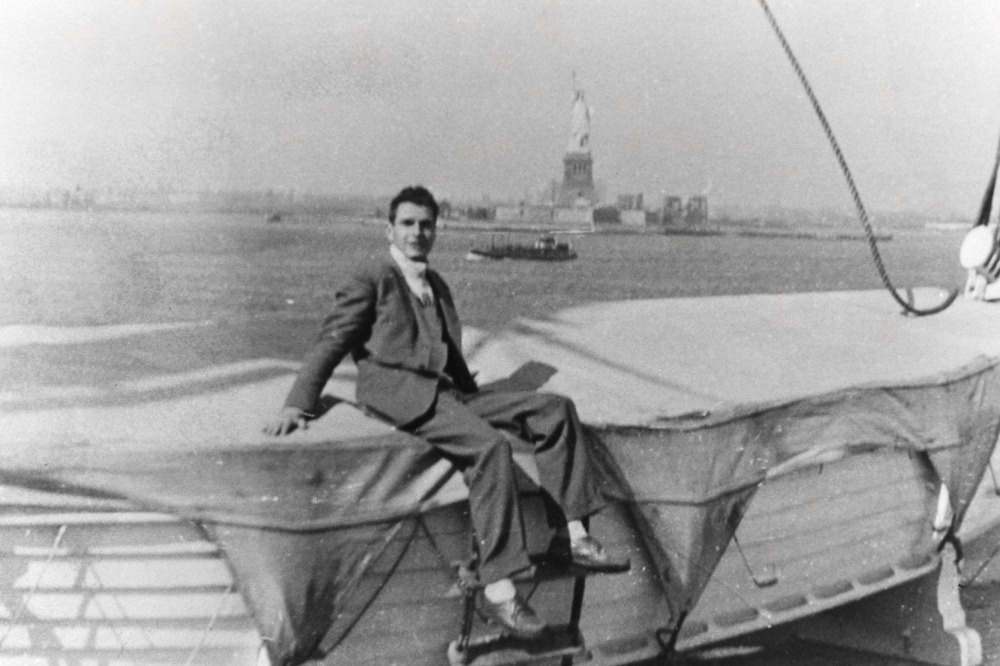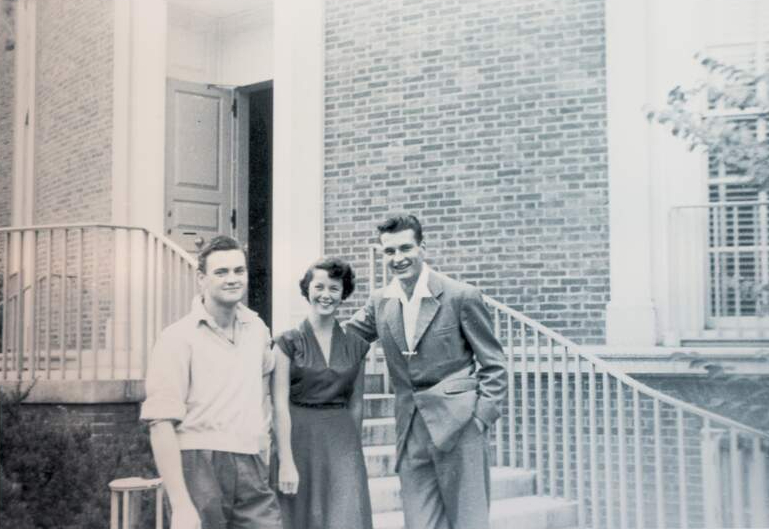Jacques Chirac, who passed away on September 26, was a friend to America and would tell anyone willing to listen. One such person was President Bill Clinton, whom he met in Washington in 1995 less than a month after his election. “Some 40 years ago when I was working as a soda jerk in a Howard Johnson restaurant,” he said, “I never thought that one day I would be at the White House with the president of the United States.”
Jacques Chirac regularly recounted his American memories like an old song. His success stories and his tales of roaming the country gave him the accessible character of a man close to the people and familiar with America. And he used it at a political weapon. When Time magazine interviewed him in 2003 about his refusal to follow George W. Bush to Iraq and his supposed anti-American sentiment, he replied: “I know the U.S. perhaps better than most French people, and I really like the United States. I’ve made many excellent friends there; I feel good there.”

Chirac fell in love with the United States in 1953. He was 20 and was finishing his second year at Sciences-Po in Paris when he received a scholarship to study at the prestigious Harvard Business School for the summer. He left with two friends on a Greek ocean liner. The trip across the Atlantic in a third-class cabin “just above the engine room” was “horrendous,” he recalled in his memoirs.
In the Underbelly of Harvard
When he arrived in Cambridge, the future president of France earned a living washing dishes! He worked nights in the basement kitchen of a restaurant on Harvard Square on the university campus before being promoted to waiter. Posted behind the counter in a white uniform, he served up cheeseburgers, turkey sandwiches, and banana splits! In his spare time, he gave French lessons and met Florence Herlihy, a young woman from a well-to-do family in South Carolina. She drove a white convertible Cadillac and called him “honey child.” A wedding was on the cards.

Their romance lasted the summer. But Jacques was already promised to Bernadette Chodron de Courcel – they married in 1956 – and his parents were “horrified” at the idea of having an American daughter-in-law! The couple separated and Chirac set off with a friend to California, traveling by car and hitchhiking. Upon arriving in San Francisco, Chirac became a chauffeur and drove to Dallas with the widow of a Texan oil baron, “an affable, distinguished old lady.” The young man was almost arrested for theft, but managed to smooth out the misunderstanding with his passenger and the local police, before setting his sights on Louisiana.
Louisiana, a Revelation
“New Orleans was a city of dreams that awaited us,” said Chirac. “We instantly fell in love with the city, and spent whole nights listening to jazz by Cab Calloway and so many others in the French Quarter.” He did not cover his classes at Harvard and his time in California in his memoirs, but recounts Louisiana in detail. He traveled up the Mississippi, crossed “magnificent forests of trees covered with white moss,” and discovered “villages along the river where people over the age of 50 still speak in our language.”
Before returning to Paris, Chirac wrote to Bernadette, with whom he was engaged to be married in October 1953. In his letter he described “the desert of Arizona and its cactuses, the oil fields and cotton plantations in Texas […], the coast of the Gulf of Mexico, the forests of Mississippi and Georgia, the tobacco in the Carolinas and Virginia.” And while he made no mention of it in his memoirs, he was impressed by Washington D.C. “It is probably the most beautiful city in the United States, if not the most modern. It is less industrial than Chicago, less luxurious than Los Angeles, less colonized than New Orleans, and less busy than New York.”
Chirac returned to Louisiana in 1954 and wrote his final dissertation about the port of New Orleans. He told his biographer, the journalist Franz-Olivier Giesbert, that he spent two months talking to the city’s biggest players, mingled with dockworkers, listened, observed, took notes, and amassed “hundreds of photographs,” and “kilos of documents.” He remarked the region’s economic potential and, 50 years before Hurricane Katrina, worried about the “poor state of the levees” designed to protect New Orleans.
Jacques Chirac’s American Dream
In an effort to finance his research in Louisiana – which earned him a front-page article in the Times-Picayune – the young Jacques drove a taxi. That is, of course, how the story goes! According to an interview he gave on CNN, he also supposedly worked as a forklift operator at the Budweiser brewery in St. Louis. Fact or fiction? Probably a little of both, according to his biographer. “This former spoiled child […] liked to say that he had experienced hard work on the other side of the world, and that he too had sweated and toiled to put food on the table.”
In an interview with journalist Vincent Nouzille, a former diplomatic advisor when Chirac was prime minister said that he “recounted his youthful adventures in the United States to just about every American he met, and they loved it every time. Right from the beginning, he had perfected his image of being a full-blown Americanophile.”












